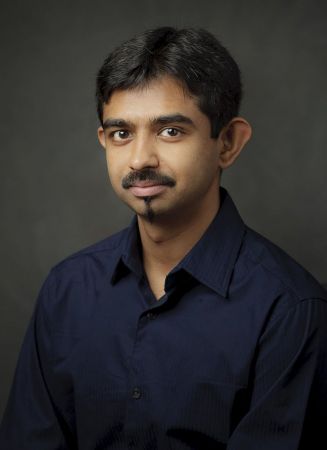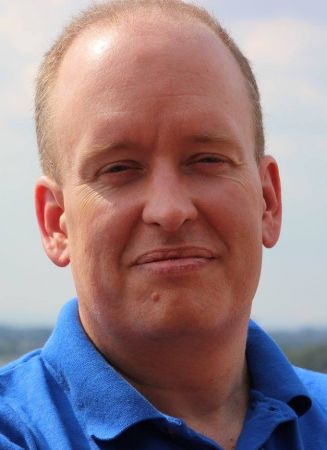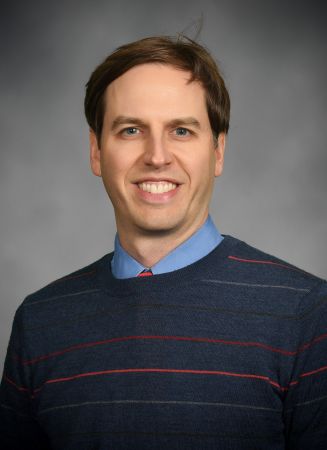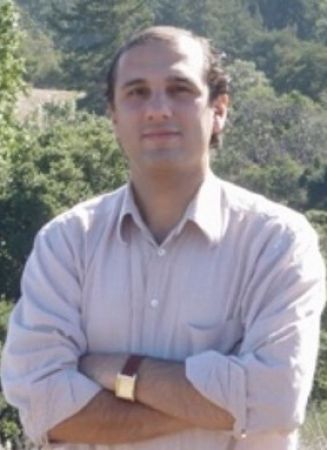Parv Venkitasubramaniam is the director of the M.S. Data Science program. The program was co-founded by three Lehigh faculty with unique perspective and expertise in creating impact through the tools and methods of data science and analytics.

Parv Venkitasubramaniam is a Professor in the Electrical and Computer Engineering Department, and the director of Lehigh's M.S. Data Science program. His research interests are in statistical inference, machine learning, information theory, and their application to address challenges in cyber physical systems. He heads the Security, Privacy and Adversarial Learning laboratory, and leads Lehigh's interdisciplinary research cluster on Data-driven Inference and Control of Dynamical Systems. He is a Senior Area Editor for the IEEE Signal Processing Letters, and a recipient of the National Science Foundation CAREER Award, and the IEEE Leonard G. Abraham Award. His research has been supported by the National Science Foundation, the U. S. Department of Energy, and the Advanced Research Projects Agency. His doctoral research was in the area of wireless sensor networks, specifically on distributed multiple access communication and statistical inference in large networks.
 Brian D. Davison is director of Lehigh's undergraduate minor in data science and teaches courses on data science, web search engines, and data mining, among others. He heads the Web Understanding, Modeling, and Evaluation (WUME) laboratory, and serves as editor-in-chief of the Association for Computing Machinery (ACM) journal Transactions on the Web. He spent his most recent sabbatical with the Core Data Science group at Facebook. His research includes search, mining, recommendation and classification problems in text, on datasets, on the Web and in social networks. Davison is an NSF Faculty Early CAREER award winner and one of twelve Microsoft Live Labs "Accelerating Search" award recipients. Dr. Davison's research has been supported by the National Science Foundation, the Defense Advanced Research Projects Agency, Microsoft, Amazon, and Sun Microsystems. As a graduate student, he led development in the Rutgers DiscoWeb search engine project which was later spun out as an internet startup called Teoma (and was subsequently purchased by Ask Jeeves.)
Brian D. Davison is director of Lehigh's undergraduate minor in data science and teaches courses on data science, web search engines, and data mining, among others. He heads the Web Understanding, Modeling, and Evaluation (WUME) laboratory, and serves as editor-in-chief of the Association for Computing Machinery (ACM) journal Transactions on the Web. He spent his most recent sabbatical with the Core Data Science group at Facebook. His research includes search, mining, recommendation and classification problems in text, on datasets, on the Web and in social networks. Davison is an NSF Faculty Early CAREER award winner and one of twelve Microsoft Live Labs "Accelerating Search" award recipients. Dr. Davison's research has been supported by the National Science Foundation, the Defense Advanced Research Projects Agency, Microsoft, Amazon, and Sun Microsystems. As a graduate student, he led development in the Rutgers DiscoWeb search engine project which was later spun out as an internet startup called Teoma (and was subsequently purchased by Ask Jeeves.)
 Daniel Robinson earned his Ph.D. in Mathematics from the University of California, San Diego. He previously served as a Postdoctoral Researcher at Oxford University, a Postdoctoral Researcher and Visiting Professor at Northwestern University, and most recently as an Assistant Professor at Johns Hopkins University. Daniel works at the intersection of Mathematical Optimization and Data Science. He designs, analyzes, and implements algorithms for solving continuous optimization problems arising in applications for healthcare and computer vision. His articles have appeared in top applied mathematics journals, such as Mathematical Programming and SIAM Journal on Optimization, as well as in top data science conference proceedings, such as the International Conference on Machine Learning and IEEE Conference on Computer Vision and Pattern Recognition. He is an Associate Editor for the reputed journals Computational Optimization and Applications and Optimization Methods and Software. Daniel was a founding member of Johns Hopkins' Mathematical Institute for Data Science (MINDS) and helped to establish JHU's Master of Science in Data Science program. He has (twice) received the Professor Joel Dean Award for Excellence in Teaching, and has been awarded numerous grants from the National Science Foundation and other funding agencies.
Daniel Robinson earned his Ph.D. in Mathematics from the University of California, San Diego. He previously served as a Postdoctoral Researcher at Oxford University, a Postdoctoral Researcher and Visiting Professor at Northwestern University, and most recently as an Assistant Professor at Johns Hopkins University. Daniel works at the intersection of Mathematical Optimization and Data Science. He designs, analyzes, and implements algorithms for solving continuous optimization problems arising in applications for healthcare and computer vision. His articles have appeared in top applied mathematics journals, such as Mathematical Programming and SIAM Journal on Optimization, as well as in top data science conference proceedings, such as the International Conference on Machine Learning and IEEE Conference on Computer Vision and Pattern Recognition. He is an Associate Editor for the reputed journals Computational Optimization and Applications and Optimization Methods and Software. Daniel was a founding member of Johns Hopkins' Mathematical Institute for Data Science (MINDS) and helped to establish JHU's Master of Science in Data Science program. He has (twice) received the Professor Joel Dean Award for Excellence in Teaching, and has been awarded numerous grants from the National Science Foundation and other funding agencies.

Masoud Yari is a Teaching Associate Professor with the Department of Computer Science and Engineering at Lehigh University. He joined Lehigh's P.C. Rossin College of Engineering and Applied Science in the fall of 2022. Yari's work includes instruction with Lehigh's new M.S. program in Data Science.
Prior to Lehigh, Yari worked as a research professor with Bina Lab, and he was a professional associate professor of Computer Science with Texas A&M University-Corpus Christi.
